APRIL 2025

EPIC MOMENTS CAPTURED: NZ OPEN, DOUBLES & JUNIOR OPEN! SEE STUNNING IMAGES AND FULL RESULTS FROM OUR THREE BIG EVENTS!
FROM CLUB PLAYER TO THE WORLD STAGE: FACING THE WORLD NO. 1! A FIRSTHAND ACCOUNT OF STEPPING ONTO COURT WITH ALI FARAG!


EPIC MOMENTS CAPTURED: NZ OPEN, DOUBLES & JUNIOR OPEN! SEE STUNNING IMAGES AND FULL RESULTS FROM OUR THREE BIG EVENTS!
FROM CLUB PLAYER TO THE WORLD STAGE: FACING THE WORLD NO. 1! A FIRSTHAND ACCOUNT OF STEPPING ONTO COURT WITH ALI FARAG!

Independent research by leading consumer magazine Reader’s Digest found G.J. Gardner Homes to be New Zealand’s Most Trusted Home Builder once again.
Talk to us today and see why more New Zealanders trust G.J. Gardner to build their homes year after year.
0800 42 45 46 / gjgardner.co.nz
8. NZ Junior Open
10. NZ Squash Open
16. Squash in the media
18. High Performance
21. Peak Performance with Kemp
24. NZ Doubles Championships
26. Masters Profile
28. Annual awards
30. Player Magazine exctract
32. Guest Writer - Paul Hornsby
34. Tournament Controller Pathway
36. Referee 42. Coaching 44. Volunteer of the month 46. MySquash Q&A
51. National Tournament Calendar








Tēnā koutou

March has undoubtedly been the biggest month for the National Office, and we are immensely proud of what has been achieved—most notably, the overwhelming success of the NZ Open. Delivering an event of this scale is a monumental effort, driven primarily by volunteers – thank you all so much! But the motivation isn’t financial; it’s about inspiring more people to take up squash and elevating the sport’s profile.
Hosting the event in a theatre created a compelling story that captured national attention. Anyone who watched—whether live, on Sky, or in person—couldn’t help but be inspired by the sheer athleticism, skill, and drama that unfolded throughout the tournament.
A standout moment for me was looking out from the stage on finals afternoon. The sight was truly unforgettable—three tiers of theatre seating packed with 1,200 engaged spectators, the largest crowd ever to watch squash in New Zealand, along
New Zealand Doubles Championship Central Masters
Oceania Junior Championships
April
April
with rows of corporate tables flanking the court. And, of course, seeing half of Greymouth in the crowd, beaming with pride as their hometown hero took the title, was something special.
The following day, the excitement continued. I tuned into New Zealand’s most popular radio station, Newstalk ZB, to hear Mike Hosking interview Paul in a double segment—you simply can’t buy that level of promotion!
Beyond the spectacle, what was truly exciting was witnessing the performances of our young Kiwi wildcards, who proved they have the talent and potential to compete on the world stage. Let’s not forget the NZ Junior semi-finalists and finalists, who had the incredible opportunity to showcase their skills on the big stage. Phew—what a month!
Ngā mihi Martin Dowson
Venue
Hutt City Squash Club
Okato Squash Club
Hamilton Squash & Tennis Club
Junior Trans-Tasman Test Series
Hamilton Squash & Tennis Club Event
Don’t miss any upcoming events. Click HERE to access the full tournament calendar

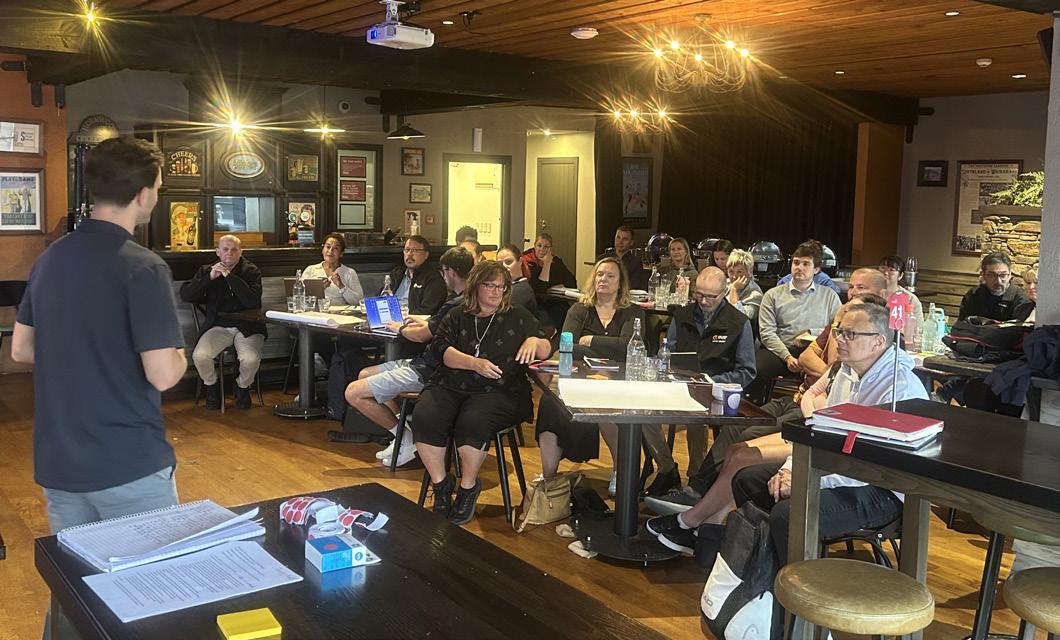
March saw the return of our annual face-to-face forum in Christchurch, bringing together Squash NZ’s national office, district boards, and staff for a valuable opportunity to connect, collaborate, and plan for the future.
Discussions covered a range of key topics, including the nationwide rollout of MySquash, the introduction of the new junior programme, Squash Stars, and other strategic priorities shaping the sport’s direction. A real highlight was the collective sense of purpose in the room—working together to navigate challenges, seize opportunities, and develop strategies that will strengthen squash both now and in the years ahead.
Immigration scam: Fake squash players from Pakistan caught applying for New Zealand visas with forged letter. Read the article HERE


We are deeply saddened by the passing of Matey Galloway, a dedicated national referee for over10 years.
Matey was a stalwart of the Wellington squash scene for many years, and his passion for the sport was evident not only in his contributions but also in his unwavering support for his children’s squash journeys. His commitment and enthusiasm have left a lasting impact on the squash community.
Our heartfelt thoughts go out to his family and friends during this difficult time.
In March, we held our AGM, marking another important milestone. For a full overview, we encourage you to explore the Annual Report HERE

Hello
We have a member who has requested her email address in Hello Club be changed. Can this be done or does it have to be changed in MySquash also?
Thanks
Club Administrator
Hi Club Administrator
Players can update their own email address in MySquash or Hello Club. As their profiles are already connected, they can change it in one and not the other and it won’t break the connection between the profiles.
Cheers
We welcome letters to the national office. Please send your letter to admin@squashnz.co.nz
We will publish a selection each month, all questions will receive a response if not published. THANK

Hi Team
I’m trying to familiarise myself with this as loading scores post tournament is a nightmare.
I can see on MySquash how this is done and makes sense. However, a lot of clubs currently have iPads for electronic scoring so this will be what’s used for the live scoring. Does that mean that once I have finished playing, therefore reffing the next game, I would need to log into my MySquash account? Then the next player then logs into their MySquash account etc etc?
I would not want to leave my account open for others to use. So how is this done abroad for those using the live scoring, automatic loading of results.
Kind regards Hine
Hi Hine,
If you’ve got an email that’s accessible on each tablet, you can send the live scoring link for the tournament to that email, pick up the live scoring URL from the email and put that into the browser. Or, you could just use the camera on the iPad to scan the QR code from someones phone once to open it.
Once it’s in live scoring it doesn’t need to be set up again for every match, it will take them back to the list of matches unless someone closes the browser.
Cheers

for a grant to help us with Coach Developent and the development of MySquash


9TH

Over 140 junior players from across the country descended to Christchurch for a fantastic weekend of squash. Mixing with the professional players our juniors had the experience of a life-time playing squash alongside the best in the world. Especially our open division semi finals and grand finals all of which were played on the Iconic Glass court in the Isaac Theatre Royal. What an incredible moment.




Boys Open


Girls Open
1. Oliver Dunbar
2. Freddie Jameson
3. Rain Wong
Boys Div 1
1. Surya Sathish
2. Campbell Dunwoodie
3. Riley Priest
Boys Div 2
1. Matt Paul
2. James Seath
3. Reuben Peterson
Boys Div 3
1. Ryan Linton
2. Prasad Prabhu
3. Ben Pottinger
1. Anabel Romero-Gemmell
2. Ella Hill
3. Maiden-Lee Coe
Girls Div 1
1. Amalia Ricketts
2. Jaime Tipu
3. Sophia DeNardi Gonzalas
Girls Div 2
1. Angelina Chen
2. Julia Chen
3. Addison Rouse
Girls Div 3
1. Arihia O’Driscoll
2. Mia Mennell
3. Tayla Keeley

Boys Div 4
1. Max Pickering
2. Shaun Hu
3. Rab Keown
Boys Div 5
1. Oliver Heaney
2. Szron Yeung
3. Samuel Barlow
Boys Div 6
1. Cooper Spillane
2. David Fitzpatrick
3. Tyler Ali

Girls Div 4
1. Jeslyn Jiang
2. Doris Guo
3. Violet Casey


Playing before the largest ever crowd for a squash match in New Zealand, top seed Coll quickly set the tone with a strong start to the match, tearing into ElShorbagy and providing himself a perfect platform with an 11-5 win in the opening game of the men’s final.
ElShorbagy found the perfect response in game two, with the No.2 seed fired up and at his explosive attacking best as he hit back 11-8 to set nerves fluttering inside the Isaac Theatre Royal.
Game three was a brutal affair for both men, with Coll and ElShorbagy putting a number of lengthy rallies into each other’s legs in front of the 1,200 spectators.
Unfortunately for ElShorbagy, long games are Coll’s bread and butter, and the Kiwi’s impeccable fitness was on full display as he moved away from 5-5 to regain his lead with an 11-6 win.
ElShorbagy appeared to be feeling the effects of game three at the beginning of the fourth, as Coll stormed to a 5-1 lead. The Englishman desperately tried to go on the

attack to rattle off quick points, but Coll was simply too good, throwing his arms into the air in triumph as he powered home with an 11-3 victory in front of a jubilant crowd.
“It’s been an unreal week,” said Coll. “I really went out with the mindset of trying to enjoy this week. This is pretty much my hometown and so many friends and family came out to support me.
“I never dreamed of this, to play such a big event here, to have so many people turn out today, it was pretty unreal. I’m so filled with emotion.” Around 1,200 spectators watched the match live, setting a record for the largest ever crowd for a squash match in New Zealand. Result: [1] Paul Coll (NZL) bt [2] Marwan Elshorbagy (ENG) 3-1: 11-5, 8-11, 11-6, 11-3 (59m)

In the women’s final 17-year-old Egyptian Amina Orfi won her third title of the season as she put in an incredible performance to defeat Japan’s Satomi Watanabe.
Orfi was magnificent early on, with the young Egyptian dominating proceedings to earn a 7-2 lead in the opener. Watanabe began to chip away at Orfi’s lead, but the World No.8 was simply too far ahead, taking the first game 11-5.
Watanabe hit her lengths better in game two, recovering from 0-4 down to take an 8-6 lead. Orfi was unrattled as she calmly notched up points, eventually working her way to an 11-8 win.
Flowing with confidence, Orfi never let her energy or commitment drop, and she took a huge lead at 9-4 in the third game. Watanabe took the next point to briefly threaten a comeback, but was no match for Orfi’s unnerving accuracy, with the teenager winning her third title of the season with an 11-5 victory.
Result: [2] Amina Orfi (EGY) bt [6] Satomi Watanabe (JPN) 3-0: 11-5, 11-8, 11-5 (38m)



The day’s play concluded the New Zealand Squash Open which was contested from March 4th to 9th in Christchurch’s iconic Isaac Theatre Royal, where a glass court was installed on stage. The overall draw featured 24 men and 24 women from 17 nations and six continents making it a truly global event.






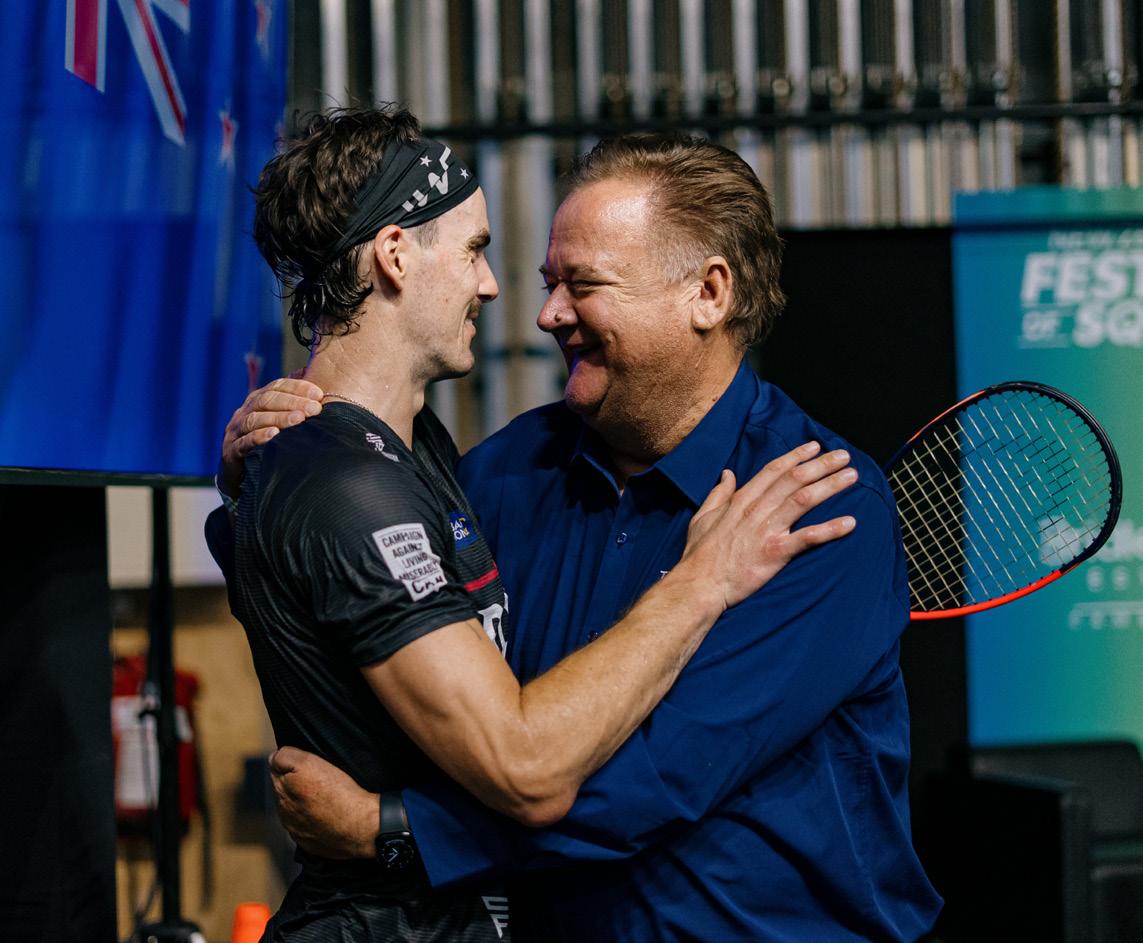









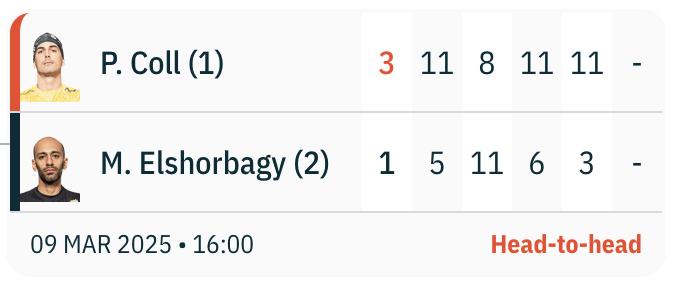



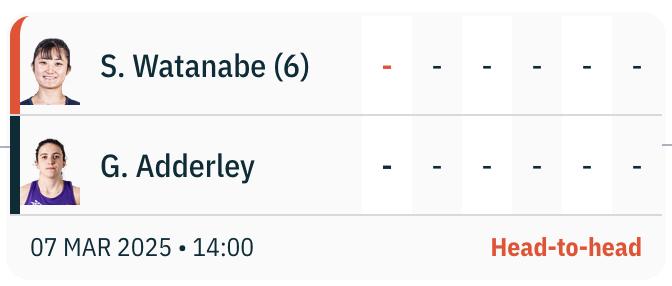

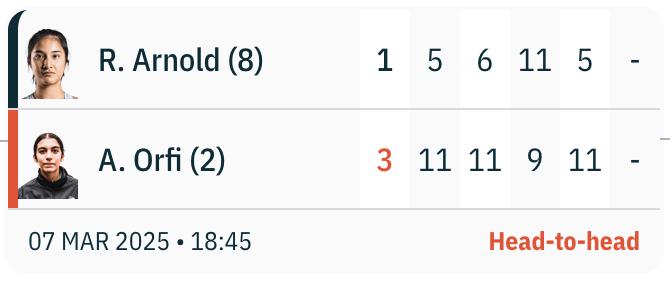












“Feeling
Paul Coll admits fulfilling a dream by winning the New Zealand Open squash title in front of a record crowd in Christchurch.
Click HERE to listen
Paul Coll defended his New Zealand Open squash title with a dominant win over England’s Marwan ElShorbagy in front of his hometown fans in Christchurch.
Click HERE to read
The Christchurch theatre has been transformed into a sports arena with a glass squash court centre stage for the New Zealand Squash Open. It marks the first time the event has been held in the South Island or in a theatre.
Click HERE to read
Top junior Ella Lash overcomes a health scare to join her inspiration Joelle King and a clutch of world-leading players at the NZ Squash Open. Aiden McLaughlin reports.
Click HERE to read
An upset in the first round of the New Zealand Squash Open in Christchurch, with 18-year-old Ollie Dunbar winning his opening match.
Click HERE to read
Kiwi wildcard Ollie Dunbar’s has given the 2025 New Zealand Squash Open a shot in the arm on the opening day with a massive upset victory in the first round.
Click HERE to read
New Zealand’s Paul Coll has been defeated by Egypt’s Karim Abdel Gawad in the final of the Australian Open. World No.8 Gawad started well in a tight opening game in Brisbane, with the Egyptian showing his typical touches of class.
Coll grew into the contest, finding the back corners with increased accuracy as the game wore on as he clinched the 22-minute opener 11-9. Gawad’s response came in game two as he dominated the T and scored quickly with casual touches to strike back 11-6.
Game three was stop-start, with the lack of fluidity suiting Gawad as the Egyptian fired in winners and capitalised on errors from Coll to earn four game balls at 10-6. Incredibly, Coll saved all four of them, finding his accuracy when he needed it most to go game ball up 11-10. This time, it was Gawad’s time to dig in, with the Egyptian showing his steely resolve to finally take the 25-minute grapple 13-11.
Coll requested a new ball between games, which initially seemed to pay off as the Kiwi took a 7-3 lead. Gawad fought back to 8-8 and was brilliant from there, dragging Coll all over the court as he earned two championship balls at 10-8. Coll saved one but in a nerve-shredding finale, Gawad managed to play a perfect drop that stuck to the wall, beyond the despairing lunge of Coll to complete the comeback.
The New Zealand’s Paul Coll has gone down in straight games to World No.2 Mostafa Asal in the final of the Optasia Championships in London.
Coll had a tough road to the finals, spending more than two-and-a-half hours on court during his two previous victories over the ElShorbagy brothers. The Kiwis fatigue showed as Asal remained happy to keep a steady pace of play against No.2 seed Coll and lengthen out the rallies early on.
It was the sudden injections of pace and power that troubled Coll the most, with Asal managing to pounce whenever the Kiwi’s length was marginally off. The opening two games both went in Asal’s favour by 11-4 scorelines, before Coll began to match the Egyptian’s play early in the third. Despite Coll stepping up onto the ’T’ with more regularity early in the third and looking to push the pace of play, Asal continued to cut a relaxed figure, managing to wrong-foot Coll with a number of smart shot selections on his forehand wing.


“Paul is an incredible player and has everything in the game,” Gawad said.
“I need extra energy every time I play him and I’d like to thank him for an amazing final. It’s a huge honour to add my name to all these Australian legends on this trophy. I’ve learnt so much from them and thanks to everyone for coming and supporting us. A special thanks to the court attendants, who have worked incredibly hard, and the referees for everything this week.”
Result:
[2] Karim Gawad (EGY) bt [1] Paul Coll (NZL)3-1: 9-11, 11-6, 13-11, 11-9 (83m)
The 23-year-old dominated the mid phases of the third to sit on the cusp of victory, but then Coll came charging back.
Defending champion Coll saved two match balls to reduce the scoreline to 10-8, but Asal wasn’t to be denied, sealing victory with a backhand drop into the front left court.
Result:

[1] Mostafa Asal (EGY) bt [2] Paul Coll (NZL) 3-0: 11-4, 11-4, 11-8 (54m)
The National Development Camp, held at Fraser Park in Hutt City on March 22-23, 2025, provided a valuable opportunity for our national juniors players to continue their development. The focus of the program in 2024 was on “Learning to Train,” a crucial step in closing the gap between domestic standards and international squash levels. By improving their understanding of what training should look like, we are helping players develop the skills and mindset necessary to perform at the highest levels. In just one year, we have seen significant improvements, with noticeable gains in both squash skills and fitness levels across all age groups.
In 2025, we are continuing to build on this foundation while introducing the next phase: “Learning to Perform.” At this stage, the focus shifts to making smarter decisions on the court—reducing unforced errors and attacking without giving away easy points. This was the primary focus of the camp, and it was addressed both on and off the court.
On the court, players worked on improving shot selection, reinforcing good technique, and focusing on hitting shots with a margin above the tin, rather than aiming directly at it. The aim was to develop a deeper understanding of when to attack and how to do so in a way that increases pressure on the opponent while minimizing the risk of easy points. To reinforce these concepts, we used a mix of drilling sessions, pressure drills, solo routines, and match practice.

Off the court, players took part in a workshop focused on resilience, mental toughness, and techniques for staying focused under pressure. In addition, we introduced performance breathing techniques to help players connect with their breath, slow their heart rates, and improve recovery and focus during matches.
Fitness testing on the first day of camp showed that the players’ hard work is paying off. While they were


initially nervous about the testing, there was an evident sense of pride and excitement afterward. Seeing tangible improvements in their fitness levels was a real motivator and reinforced the importance of their continued commitment to training.
Overall, it was a fantastic camp, and the players walked away with a loads of new skills and insights. The next major focus for our national players will be the 7-day consecutive competitive block from April 19-25. This block includes the Oceania Junior Championships, the Trans-Tasman Test Series, and a 2-day training camp. Results from these events will count towards world team selection, providing an important opportunity for players to prove their ability to perform under the pressures of back-to-back competition.
The ultimate goal is to identify players who can perform consistently over several days of competition and help them prepare for the physical and mental demands of the World Championships. By exposing them to this kind of intense competition in advance, we’re setting them up to succeed when it matters most.
As we move into 2025, we will continue to build on the progress made at this camp and ensure our national development players are ready to take on the challenges ahead. The journey from “Learning to Train” to “Learning to Perform” is ongoing, but we are excited about the direction the program is headed.


FREDDIE JAMESON, 18, MANAIA SQUASH CLUB
Why do you play squash?
I play squash because I love the sport and I want to test my limits to see how far I can go.
What has been the most memorable moment in your squash career so far?
The most memorable moment of my squash career was when I was 10 years old I played at Yale University in the semi-finals of the US Junior Open. The crowd was huge and the atmosphere was unreal.
How do you stay motivated during tough training or competitions?
When training gets tough and I’m struggling I remind myself of my why, and that this is progress towards my goals.
Who has had the biggest influence on your career, and how?
Glenn Wilson was my coach for 6 years and had the biggest influence in the development of my squash career. At only 8 years old he saw my potential and motivated me to pursue squash seriously. His encouragement gave me the self-confidence to branch out and attend overseas tournaments at a young age.
What do you think is the most important quality for success in squash?
I think the most important quality for being a successful squash player is having a growth mindset. Facing hard times and setbacks in squash is inevitable so its important that youre able to bounce back from challenges and come out of it with positive learnings.

When you’re not on the court, what do you enjoy doing in your free time?
I enjoy playing golf with friends and spending time with my family. I also enjoy watersports and being out in the sun.
What’s one thing you’ve learned through playing squash that you apply to other areas of your life?
Squash has taught me discipline which allows me to show up for myself and to complete tasks even if I dont want to. Squash has also taught me to have good habits such as time management, and self care (stretching, and taking care of my body).
If you could change one thing about the sport of squash, what would it be?
I wish squash was more popular and recognised world wide. This would mean better sponsorships, more prize money, bigger crowds, and more appreciation towards squash athletes.
What’s your ultimate goal in squash, and how do you plan to achieve it?
My ultimate goal is to reach world number 1, and represent New Zealand in the Olympics. To achieve this I will continue to bring 100% to training and matches and create a plan of the tournaments I need to play to increase my ranking.


Squash has evolved significantly over the last 20 years, and one of the biggest changes has been the speed of the game.
At the highest level, rallies are played at an incredible pace, demanding lightning-fast reactions, precision, and supreme fitness. But why has squash become so much faster, and what can club players learn from this shift?
1. Improved Sports Science and Conditioning –Professional players are fitter than ever, with better strength, speed, and endurance, allowing them to sustain high-intensity rallies for longer periods.
2. Lighter Equipment – Advances in racket technology have made them lighter and more powerful, enabling players to generate pace and control with less effort.
3. Lower Tin & PAR to 11 – The professional game has seen a gradual shift toward more aggressive shot-making, with the lower tin and point a rally scoring to 11 rewarding attacking play and high paced squash.
4. Higher Tempo Movement – Players now use explosive movement patterns to take the ball earlier, cutting down their opponent’s time and increasing the overall speed of rallies.
• Take the Ball Earlier – Try volleying more and stepping up on the T to take time away from your opponent.
• Improve Your Fitness – A higher-paced game requires better endurance and movement, so incorporating off-court training will help you adapt.
• Be More Attacking – Instead of waiting for mistakes, look for opportunities to apply pressure by hitting positive, well-placed shots.
• Adapt Your Game – The modern game rewards players who are proactive and quick to adjust. Whether it’s reading your opponent’s movement or refining your tactical choices, being adaptable is key.
The pace of squash isn’t slowing down, and even club players can benefit from incorporating elements of the modern game. By training smarter and playing with intent, you’ll not only keep up but also gain an edge on court.
We’re excited to announce the launch of the SNZ Futures Camps, a dynamic new initiative designed to elevate our junior players! After collaborating with district programs to understand their players’ needs, we’ve revamped and improved our regional camps, creating something more focused and age-specific.
The Futures Camps aim to inspire the next generation of squash players and provide a clear path for their development.
The Futures Camps are the result of valuable feedback from district coaches who have helped shape this fresh approach. Aimed at Under 13 and Under 15 players, these camps focus on identifying young talent with the potential to take squash seriously. It’s not just about skill improvement; it’s about getting players excited about the sport’s future and recognizing their potential. The Futures Camps offer a unique chance to experience what it’s like to be on the national radar and explore the next step in their journey—the National Development Program.
So, what makes the Futures Camps stand out from the regional camps we’ve run in the past? The biggest difference is a more targeted focus on younger players at a crucial time when they’re deciding which sport to pursue. We want to show them that squash has real potential for success and encourage them to take the next step.

Players will be nominated by district coaches and will be recognized for their dedication and promise. Each camp will be led by Performance Coaches, with assistant coaches who are current National Development players—bringing first-hand experience to the camps. Players will set goals, track their progress, and engage in fun activities that focus on teamwork and pushing themselves to do their best.
The Futures Camps are more than just training; they’re a gateway to the National Development Program and the beginning of an exciting squash journey. It’s all about inspiring young athletes, helping them believe in their potential, and giving them the motivation to pursue success in squash. These camps provide the perfect opportunity to be noticed, recognized, and ready to push forward in their squash careers.
The Futures Camps will take place across the country on the weekend of May 4, and invitations will be sent out this week. Be sure to check your inboxes to see if you’ve been selected!
Let’s begin this exciting journey together - the future of squash starts now!

Kaitlyn delivered an epic performance at the 15k PSA event, battling through two intense 5 set matches, defeating two top 100 players on her way to the semifinals.
First round: Kaitlyn faced S.Lopez (World No.107) and won a thrilling 5 set match 13/15, 11/4, 8/11, 11/9, 11/6
Second round: She then took on N. Ching Cheng (World No.70, 2nd seed) in another epic 5 set battle. Kaitlyn fought hard and won 11/8, 8/11, 11/9, 7/11, 13/11 securing a huge win!
Quarterfinals: she beat M.Prow (World No.93 and 6th seed) 11/5, 11/3, 11/7
Semifinals: Kaitlyn’s tournament eventually coming to an end with a semifinals loss to C. Serme (World No.98) 6/11, 6/11, 9/11
What an incredible effort, we could not be prouder of her performance. Great job Kaitlyn - keep up the fantastic work!

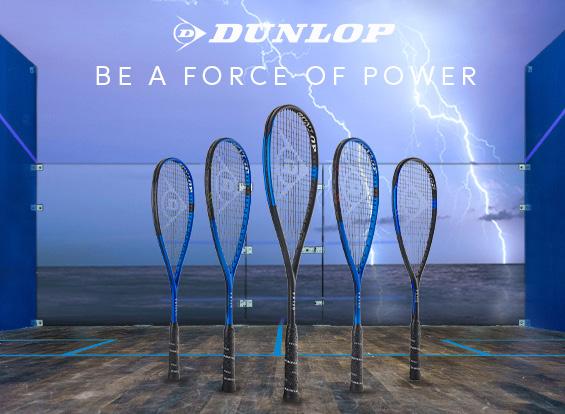
The New Zealand Doubles Championships took place last weekend at Hutt City Squash Club, Wellington. With all matches being played using the four full sized doubles courts with lowered tins, it was an exciting experience for all.

There were 40 teams across 5 different divisions with players from Christchurch, Auckland, Waikato, BOP, Central and Wellington competing for the national double’s titles. Squash NZ would like to extend a big thank you to the players and the team at Hutt City Squash Club for a great event.
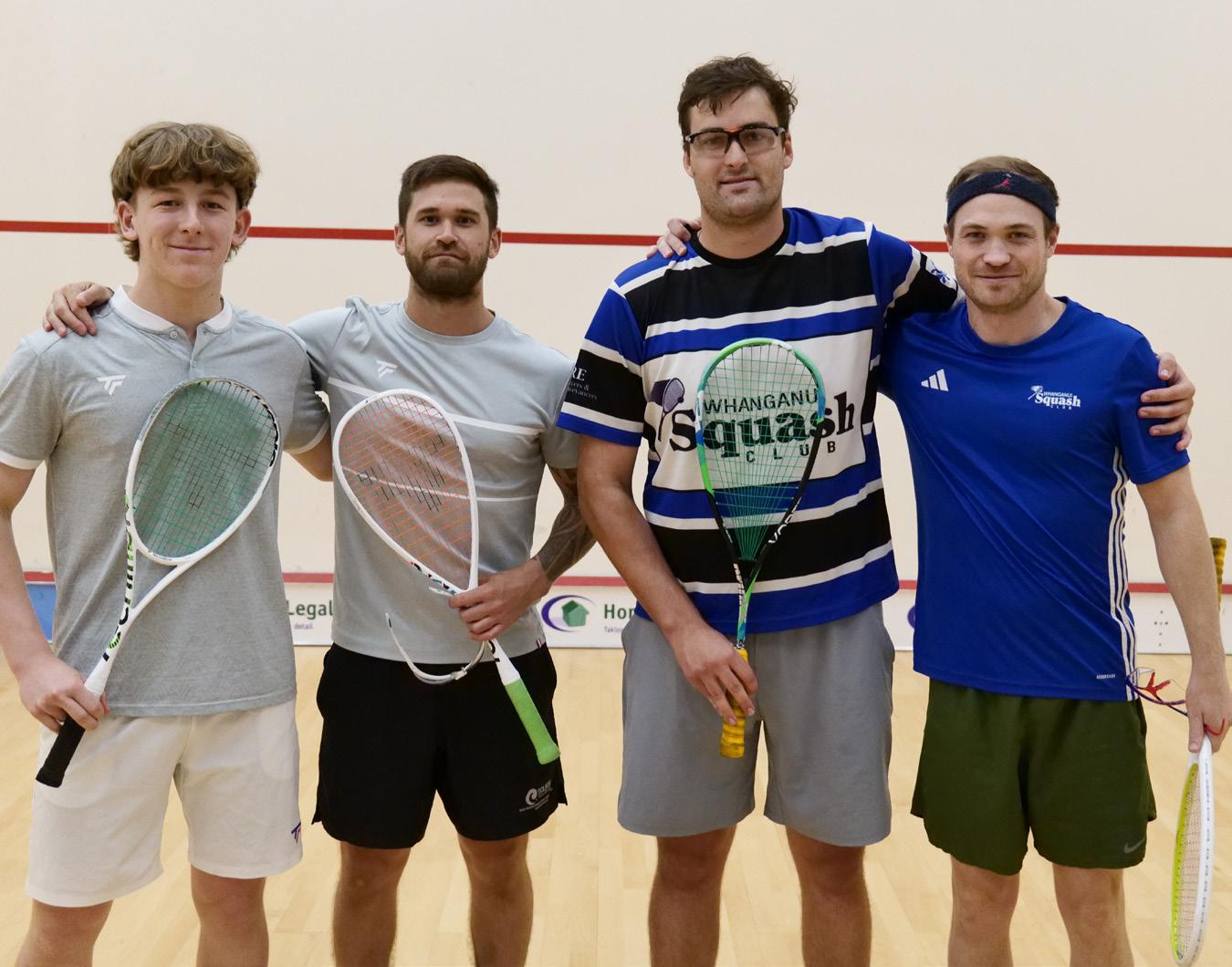
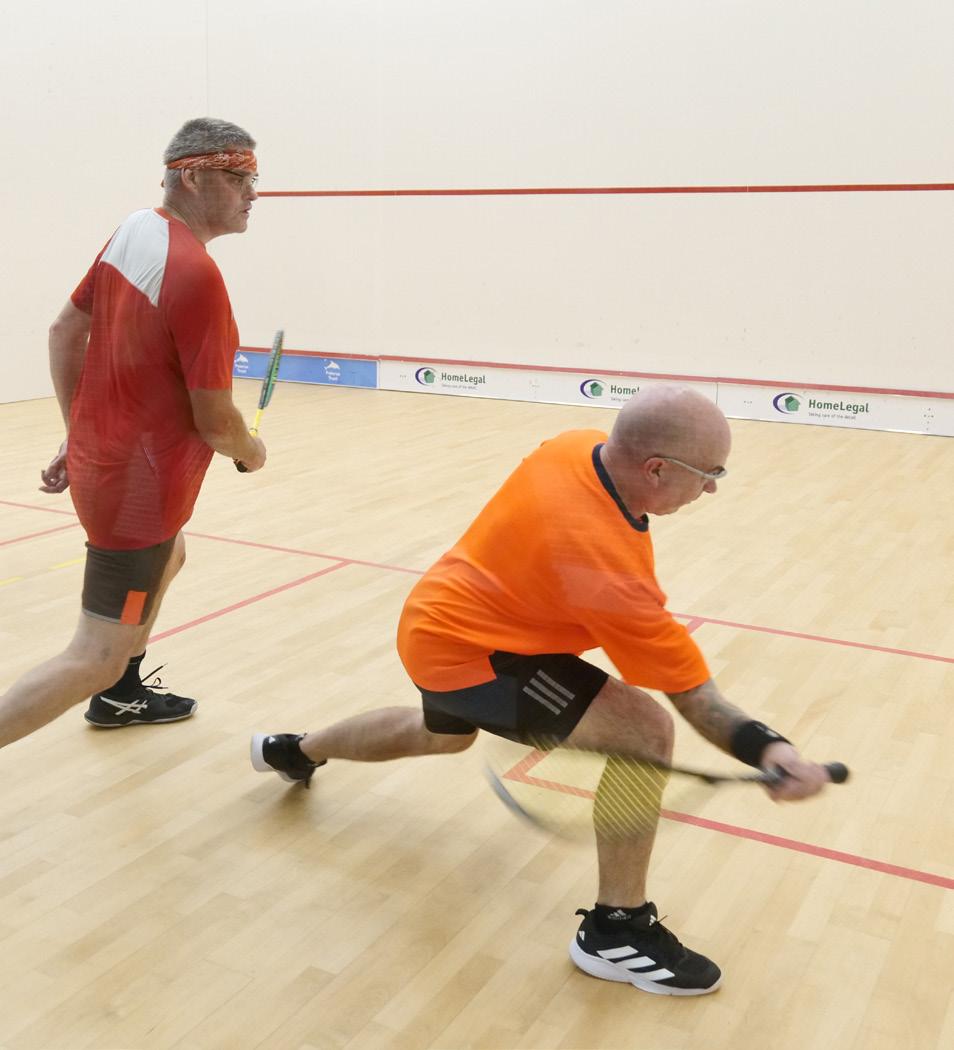
Men’s Open
1. Evan Williams & Oliver Dunbar
2. Glen Templeton & Matt Nation
3. Mike McCarroll & James Thompson
Women’s Open
1. Sophie Hodges & Winona-Jo Joyce
2. Anabel Romero-Gemmell & Danielle Cooley
3. Maiden-Lee Coe & Diana Galloway
Mixed Open
1. Winona-Jo Joyce & Glen Templeton
2. Sophie Hodges & Oliver Dunbar
3. Anabel Romero-Gemmell & Victor Romero
Master’s 35+
1. Evan Williams & Matt Green
2. Mike Allred & Kevin Milne
3. Chris Priest & Gary Aukett
Master’s 50+
1. Richie Hoare & Ben Lewis
2. Alf Izzett & Gill Du Toit
3. Terry Hession & Graham Astle
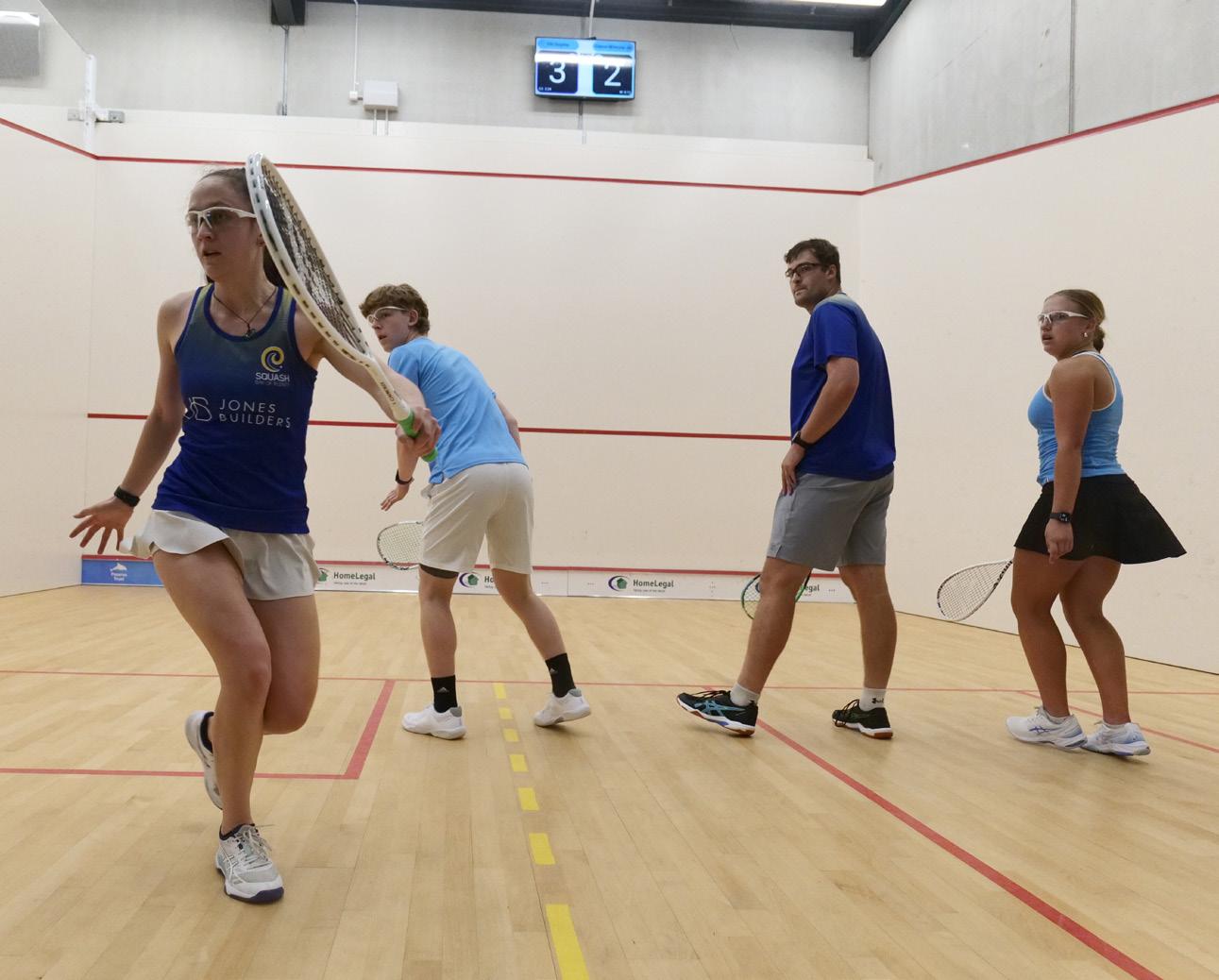
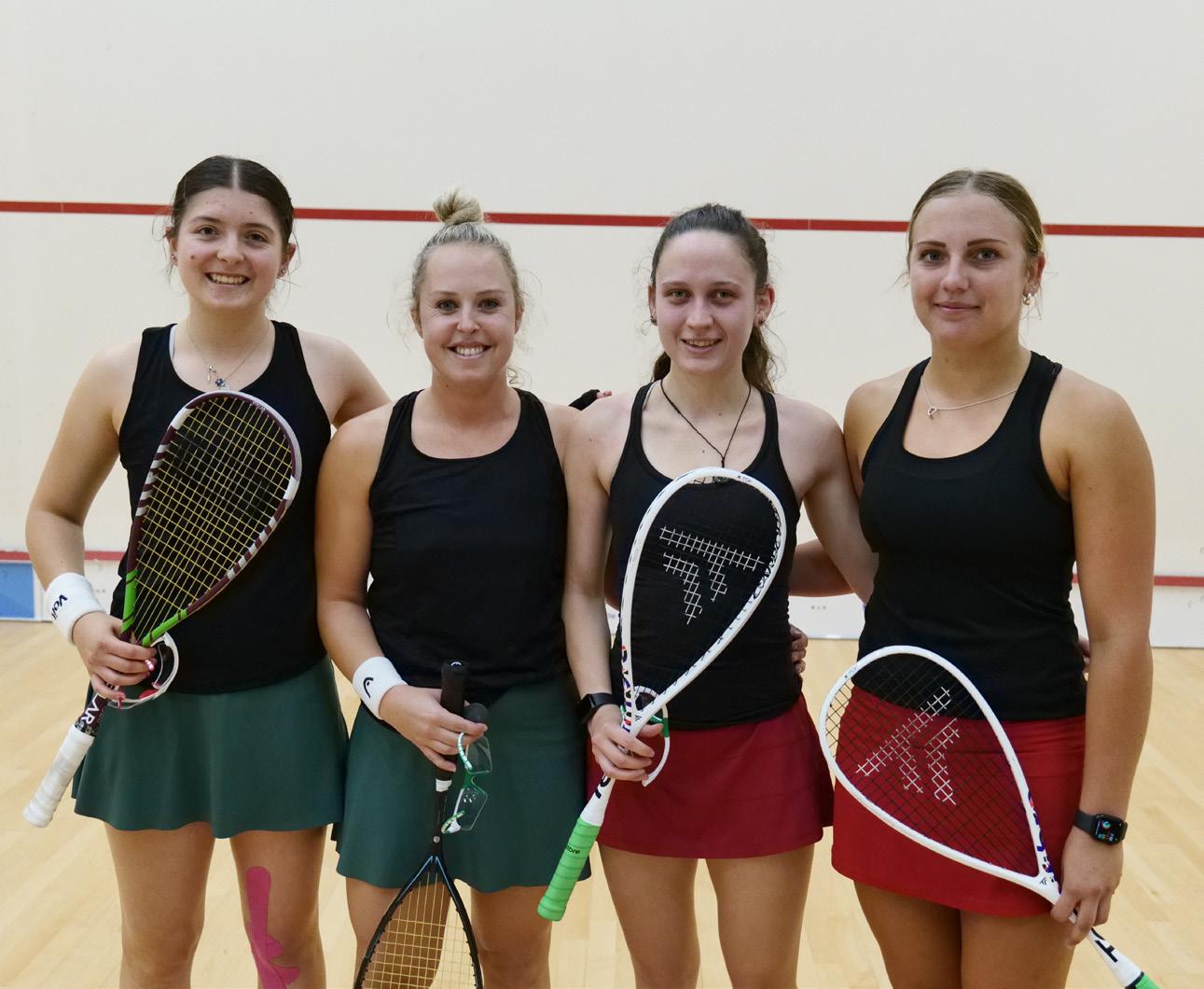
Club
Whanganui Squash Club
Why do you play squash?
I played a lot as a junior and was fortunate to make a couple of New Zealand Junior teams. As a senior, I floated around low A1. Last year, a few friends and I decided to play the World Masters in Amsterdam. If I was going to travel all the way to compete, I was definitely going to train for it. That decision reignited my passion for squash – it’s the most I’ve played since my junior days! But, at the end of the day, I’m just happy to be on court, playing and being around other squashies
What has been the most memorable moment in your squash career so far?
When I was stationed in Canada for six months, I took my rackets with me, and I made a blind call to the local squash club. Sure enough, it was owned by a Kiwi (Stu Dixon), and I was promptly welcomed with Stu putting a keg on for everyone at the squash club to celebrate the ‘special occasion.’ The squash club backed onto a heavy metal club, so you’d hear the heavy metal band on the other side of the squash wall whilst playing. Afterward, us squash players would share the bar with the leather clad heavy metal rockers, creating a bizarre crossover between something like ‘The Office’ and ‘Mad Max’.

When you’re not on the court, what do you enjoy doing in your free time?
Who has had the biggest influence on your career, and how?
My father, a B2 squash player, had the biggest influence on my squash career. As a kid, he would always take me with him whenever he played socially or in tournaments, which introduced me to squash at a young age. I was lucky that he enjoyed being involved in squash, and he happily (or at least I think so!) took me to tournaments throughout my junior years.
What do you think is the most important quality for success in squash?
Probably dedication. It’s something you notice around the clubs – dedicated players consistently put in the work, and it’s cool to see them steadily climb the grading list and reach the squash levels they aim for.
Renovating my house or fixing my temperamental Mini Cooper.
What’s one thing you’ve learned through playing squash that you apply to other areas of your life?
What’s your ultimate goal in squash, and how do you plan to achieve it? I think emulating Gary Duberly and winning a WSF World Masters title would be pretty cool! I plan on heading to the next World Masters in Australia next year and hopefully continue to compete in each successive one. However, ultimately, my goal is just to keep playing for as long as my body will let me.

CHAIRMAN’S AWARD
John Fletcher
PERSONALITY OF THE YEAR
Oliver Dunbar
VOLUNTEER OF THE YEAR
Anneka Weterman
CLUB OF THE YEAR
Devoy Squash & Fitness Centre
MOST IMPROVED SENIOR PLAYERS
Female: Ella Lash
Male: Oliver Dunbar
MOST IMPROVED JUNIOR PLAYERS
Female: Ella Hill
Male: Freddie Jamieson
DEREK COOK MEMORIAL TROPHY FOR REFEREEING
Chris Buckland
REFEREE TROPHY FOR PERSONAL ENDEAVOUR
Glenn Carson
FOUNDATION COACH OF THE YEAR
Dino Michalakis
DEVELOPMENT COACH OF THE YEAR
Shelley Kitchen
PERFORMANCE COACH OF THE YEAR
Evan Williams
ROB ROCHE TROPHY FOR MERITORIOUS SERVICE TO MASTER’S SQUASH
Gary Duberly


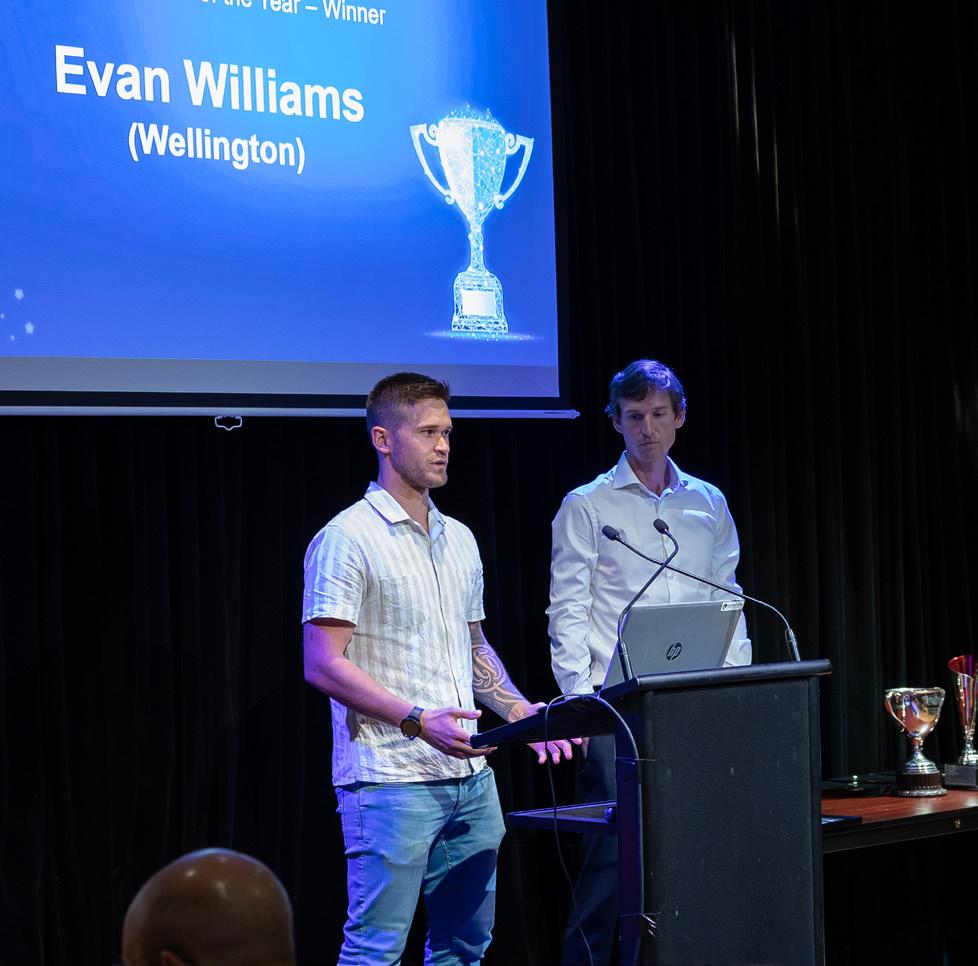



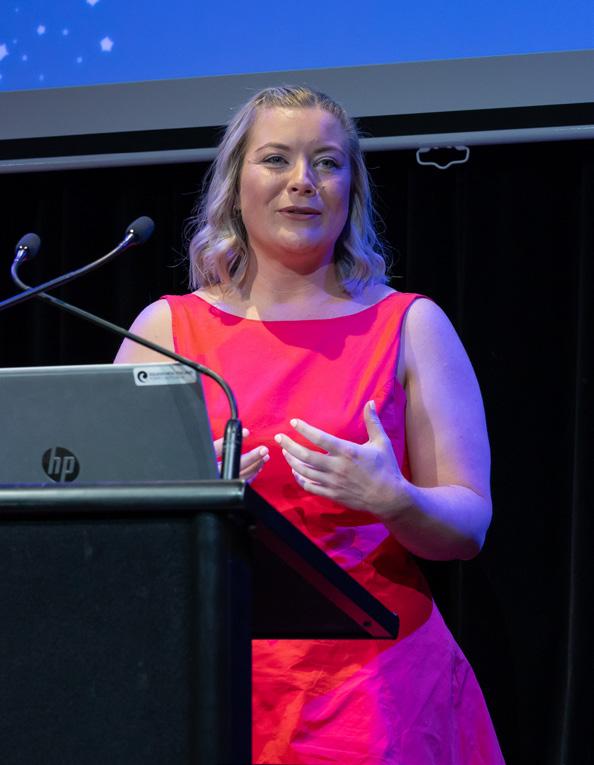

BY ROB ELLIS
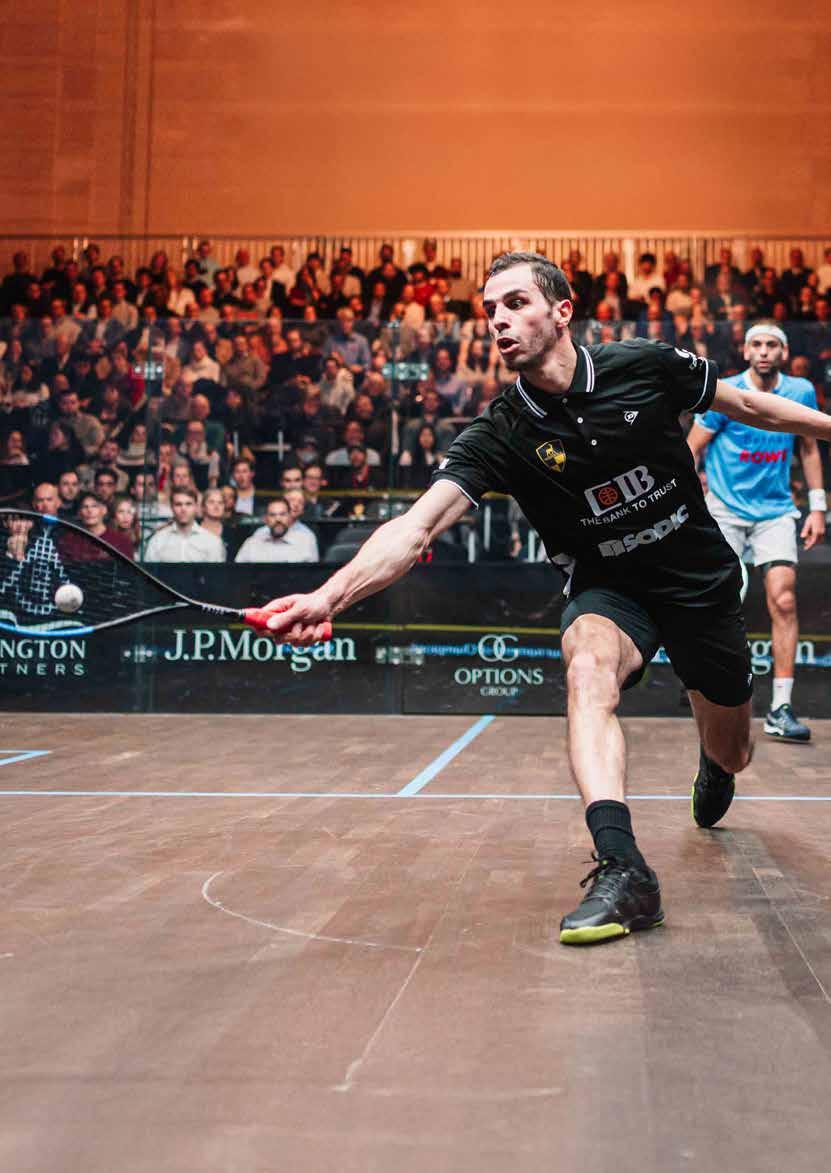
I challenged the World Number One. Here’s what I learned...

As a videographer on the PSA Squash Tour, I’ve spent countless hours watching the world’s best squash players in action. My job takes me courtside to film jaw-dropping rallies, and gives me plenty of time to analyse the seemingly impossible shots the pros execute with ease.
Off-camera, I’m also a fairly competent amateur player, holding my own in local leagues, with a SquashLevels rating just under 3,000. So, when the opportunity arose to step onto the court with Ali Farag –the current World #1 – I jumped at it. How often does an amateur get the chance to test their skills against the world’s best squash player?
Armed with a healthy dose of overconfidence, I set out to see if all those hours on the squash court and behind the camera had prepared me for this ultimate challenge.
Watching professionals battle it out, it’s easy to overlook the extreme fitness, speed, and precision required at their level. In fact, the brilliance of two evenly matched players often cancels itself out, making the sport appear deceptively simple.
This is one of the main challenges of filming squash: how do you convey just how fast and intense it really is? For many first-time viewers, squash can seem almost pedestrian. The solution? Put an amateur squash player on court with the world’s best and hit record. Thankfully, I didn’t have to look far to find a willing amateur player.
When professionals face amateurs, they often keep rallies alive, making the match enjoyable (and vaguely competitive) for their opponent. But not this time. Ali had strict instructions: no mercy. Play to win. Make it quick. Be ruthless. Win 110, 11-0, 11-0. The goal wasn’t just to beat me, but to demonstrate the colossal gap between professional and amateur squash.
What followed was a series of lessons I won’t soon forget.
From the first rally, it became clear that Ali was taking his instructions seriously. The World #1 was completely in the zone, and I felt it.
Every shot I played felt like I was feeding balls directly into Ali’s racket. He somehow knew what shot I was about to play, before I’d even decided.
No matter where I played the ball, how high or low I hit it, whether I hit it hard, took the pace off, whether I played it deep or short, straight or cross court, he was there. It wasn’t just his anticipation; it was his ability to make me feel utterly predictable.
Playing squash five days a week, I’d say I’m in a fairly reasonable shape (though one YouTube comment describing me as ‘plump’ may suggest otherwise), however, all this went out of the window once the door closed and the first rally kicked in.
Each rally felt like running on a treadmill that kept getting faster. Ali pushed the ball to the extreme corners of the court, and turned the screw further with each shot he played. His control was surgical; he knew exactly where to place the ball to make me work the hardest – and he did it effortlessly.
Meanwhile, barely a bead of sweat had formed on him. His movement was so smooth and effortless that I started to wonder if there was any shot I could play that would push him even slightly.
Ali’s drives were harder and faster than anything I could ever hope to return or reproduce. Each shot was hit to perfection – the accuracy and weight of his shot made hitting a good return impossible, and forcing a weak return only allowed him to inflict further torture.
The speed at which he played each shot was also like nothing I’d ever experienced. The time it took him to read, move towards and return each of my shots felt like mere fractions of a second, and the pressure that accumulated after each volley seemed to only ever increase as the match went on.
And then there’s the deception. His ability to control the ball is hard to put into words. One second, he was delicately placing the ball into the front corner; the next, he was playing a drive that rocketed past me before I’d even processed his swing. His body would say straight-drive, but the ball would say boast. By the time I realised what had happened, I was staring at the nick, wondering how many tries it would take me to pick up a shot like that.
The glass squash court plays extremely different to a ‘traditional’ squash court. And while the pros make playing on it look easy, I can recount first-hand – this couldn’t be any further from the truth.
Firstly, hitting the ball to the same area of the court requires you to the ball 10-20% harder. This in itself is enough to force amateur players to ‘hack’ at the ball, leading to both a decline in accuracy and much faster fatigue.
Then, there’s the lifelessness. I found myself consistently out of position due to the fact the ball dies so much deeper in the back of the court. Even though the dimensions match a normal squash court, the glass court felt comparatively enormous. Having to take an extra half-step to get to the ball sapped any and all energy from my alreadyexhausted legs.
And finally, the bright lights of the glass court take some serious getting used-to. After staring up to track one of Ali’s lobs, the intense overhead lighting burned ghostly shapes into my vision, making it nearly impossible to track the ball as it descended. If I was already struggling to see the ball before his lobs, this only made things worse!
If there’s one takeaway from my time on court with Ali, it’s a newfound respect for professional squash players – and elite athletes in general.
Watching from the sidelines, it’s easy to be critical. It’s easy to think, “I could do that,” or “Why didn’t they play a better shot?” Stepping onto the court with Ali Farag, I realised just how laughable those thoughts are. The gulf in skill is staggering, and it was an honour to experience this firsthand.
The next time I find myself courtside filming the world’s best players going toe-to-toe, I’ll be watching with a new-found appreciation for the unbelievable amount of skill, fitness, effort and ability that we’re lucky to witness week in, week out on the PSA Squash Tour.
And if you’re wondering about the scoreline…It was 11-1, 11-0, 11-0. The one point I took from Ali will be the highlight of my squash career, and nobody can take that from me.

Players performing at an elite level are required to pay close attention to five areas which affect their performance.
The three of these that normally separate the best from the rest on the professional tour are their:
Physical abilitiesendurance, strength, speed, power, agility, flexibility, stability.
Mental toughness - for example: determination, thriving on pressure, belief, positive thinking/self-talk, dealing with setbacks, controlling temperament.
Lifestyle which includes things like: diet & hydration, sleep/rest/ recovery, organisational skills, time management, communication skills.
However, the 2 remaining aspects are crucial for players of all levels to develop in order to play squash effectively. These are the Technical and Tactical parts of the game. Very basically, every squash rally from the serve to the rally ending winner or error is a constant cycle of:
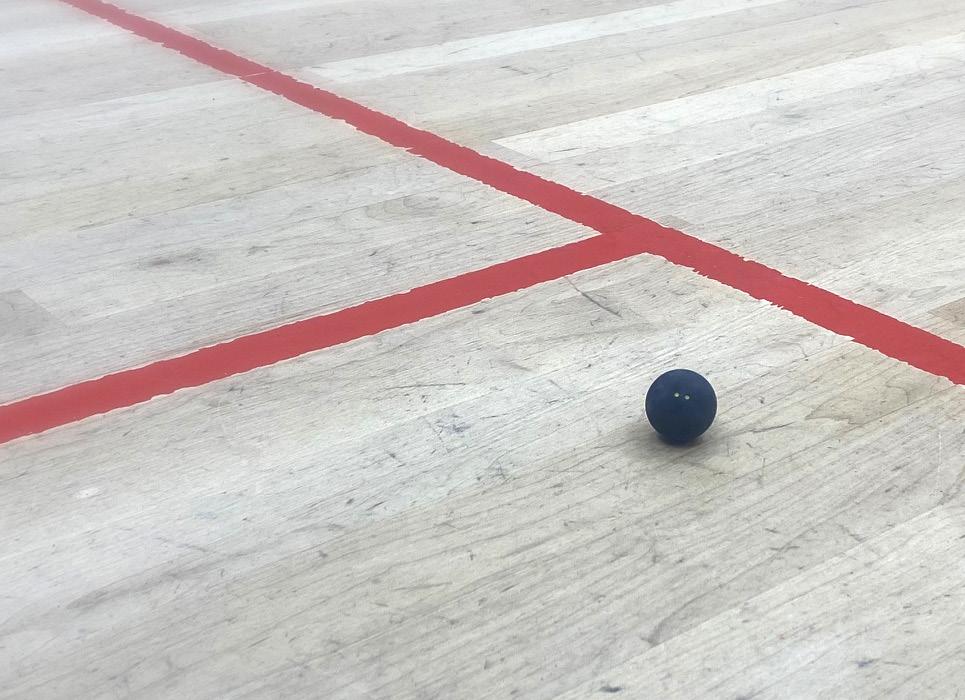
my students to imagine they have two different parts of their brain which they engage for different types of on court session. It can be imagined as a continuum with technique at one end and tactics at the other.
1. Choosing a target (shot selection) - Tactical
2. Preparation of racket and footwork - Technical
3. Execution of shot (including movement back to T) - Technical
4. Anticipation and reaction to opponents shot - Tactical
Although the two aspects go hand in hand, it is impossible to fully focus on both at the same time. For example: imagine playing a rally and concentrating on how you are holding your grip, your stride pattern and follow through. You would be totally distracted, or ‘switched off’ from reacting to your opponents shot or deciding on the best place to put the ball! Therefore, it is very important to practise technique and tactics in isolation in order to develop both effectively. I often tell
Sound technique can be grooved and developed in low pressure situations where there are no variables at play- such as anticipation/reaction/shot selection. These are often referred to as ‘closed’ skills where the act of execution is the only thing to focus on. Examples of these are: coach fed exercises, solo practice and ghosting. Continuous, deliberate practice in this department with lots of attention to detail will pay off by technical actions eventually becoming ‘natural’ or ‘automatic’ and therefore not needing to be focussed on during matchplay.
Sharpening and refining tactical astuteness comes through practices where it is necessary to focus on ‘reading’ and ‘reacting’ to the present scenario instantly! Such as: anticipation of opponents shot, understanding whether to attack or defend, varying pace, containing an opponents strength or exposing their weakness. These elements are described as ‘open’ skills and are best developed through practice matchplay or conditioned games.
Bridging the Gap
It is possible to design exercises which incorporate both a technical and tactical focus. These are often routines with a random element- or in other words a shot choice. This challenges the hitter to understand when and why to choose to play a particular shot, whilst also requiring the non-hitter to be able to anticipate and react accordingly. Because it is not an open game or rally situation, it allows players to remain focussed on certain technical elements that they are working on at any given time.
Conclusion/Recap:
• Concentrating on technique during matchplay is a distraction
• Dedicate time to ‘closed’ exercises to groove technique
• Find a like-minded player who is keen to do randomised drills, or conditioned games to improve tactical awareness
Paul Hornsby is the founder of PHSquash and an internationally renowned coach, analyst and TV commentator/presenter. Having worked with players of all standards from complete beginner to World Number 1 ranked athletes, he has the tools and expertise to bring the very best out of anyone with the passion and drive to develop their game.
Paul is based primarily at North Shore Squash Club, Auckland, but is able to travel to various locations around New Zealand if demand and timings allow!
For further information or enquiries, contact Paul: paul@phsquash.com 0274778274 (02PHSQUASH)
We welcome guest writers in The Boast!
If you have something you would like to contribure with, please email admin@squashnz.co.nz for further info.
Q1: Who is the only Kiwi to have won a world Junior Championship?
Q2: What year did Paul Coll win his first British Open title?
Q3. How many matches did Jahangir Khan win in a row before losing to Ross Norman?
Q4. What is the shortest amount of time taken to win a men’s PSA World Tour Event? (playing at least 4 best of 5 matches) 72 mins, 92 mins, 112 mins, 132 mins.
Q5: Who won the 2024 SNZ Volunteer of the Year Award?
Q6: The 2025 NZ Junior Open Champions were:
A – Oliver Dunbar and Ella Hill,
B - Freddie Jameson & Anabel Romero-Gemmell
C – Oliver Dunbar & Anabel Romero-Gemmell
Q7: What long weekend is the Cousin Shield and Mitchell Cup Competition always played over?
Q8: What SquashLevels rating weighting does an Interclub Match have?
Answers on p. 37
There are lots of different ways you can promote your club event, one of the most popular option clubs uses is creating a Tournament Poster. The main purpose of a tournament poster is to have all your event information in one place that can easily be shared around and displayed for players to see.
The sooner you can get your poster shared out the better, this gives players time to think, plan and enter.
What makes a good tournament poster?
• Aesthetically pleasing
• Good imagery
• Not overloaded with information
• Small amount of writing, relevant and to the point
• Covers the important information, what, where, when, etc.
hack
Canva is a free online graphic design platform that is easy to use and can help clubs create posters, social media content and more in minutes. It is free and has lots of templates that can save you time when creating content for your club.
Sign up your club for a free Canva account now and get creating. Click HERE for Canva’s website.
Find out more ways to promote your club event and check out our helpful resources.




Many people think that our referees just rock on up to a court, pick up a scoresheet and start refereeing. And at some levels, many people do. Our sport is one of a few where for the most part, players referee their peers, and it is not something that many people enjoy doing. But what are some of the factors that make some people better at refereeing than others.
A good squash referee possesses several key qualities and skills that ensure the game is played fairly, smoothly, and in the spirit of the sport. Here are some of the key attributes:
1. Knowledge of the Rules
A referee must have a thorough understanding of the official squash rules. This includes knowing the regulations around scoring, court boundaries, conduct, and any other nuances of the game. They should be able to apply these rules consistently and fairly.
2. Good Communication Skills
Effective communication is essential. The referee must be able to make clear, concise calls and explain decisions when necessary. They should also be able to keep a calm and respectful tone, both with players and the crowd, if present.
3. Strong Focus and Attention to Detail
Squash is a fast-paced game, and the referee must stay focused and observant throughout the match. They need to be able to track the ball’s movement and anticipate any possible rule violations, such as interference or lets, without missing a beat.
4. Impartiality
A referee should be unbiased and neutral, treating both players equally regardless of their skill level, reputation, or personal preferences. The referee’s decisions must be made solely based on what’s happening in the game, not external factors.
5. Good Judgment and Decision-Making
Sometimes, situations in squash can be complex or unclear. A referee needs to have sound judgment, knowing when to make a call and when to let play continue. They should be confident in their decisions and not hesitate when the situation calls for action.
6. Calm Under Pressure
Refereeing in squash can be intense, especially during crucial points or when players are upset. A good referee will remain calm, composed, and professional, handling pressure from players or spectators effectively.
7. Ability to Manage Players’ Behavior
Squash players can sometimes become frustrated or emotional during the game. The referee should be able to manage these situations with diplomacy, ensuring that players maintain respect for each other and for the game.

Some of the matches last for over an hour. The referee must sit or stand in a position to be able to see the game. To maintain this position and concentrate for the duration of the match can take a toll both physically and mentally, so physical and mental fitness can also have a part to play for the referee.
A good referee consistently enforces the rules throughout the match, avoiding any favoritism or inconsistent calls. This helps players know what to expect and can maintain the flow of the game.
A referee needs to exude confidence and authority in their decisions without being too officious. Players must trust the referee’s calls, so being able to make decisions without second-guessing is crucial.
The best referees are those who are always looking to improve. Whether through feedback, watching other experienced referees, or keeping up with any changes to the rules, a commitment to continuous learning helps a referee stay sharp and improve their performance.
In short, a good squash referee is someone who is knowledgeable, composed, and fair, and who can effectively manage the flow of the game while maintaining authority and impartiality. Maybe next time you are refereeing, consider which of these aspects you bring to the game and which maybe might need some improving.
Increasingly at events, we are seeing some players bring towels onto the court and place them in front of the tin. Is this allowed? No
Rule 15.2
Conduct: Players may not place any object within the court
At some PSA level events, there will be towel boxes on the court, and this is a decision by the tournament organisers, but if there is no towel box, then no towels are allowed.
Do you have a refereeing question or a situation you are not sure about?
Chances are others may have the same query. Send your query to our NZ Referees c/mikejack@xtra.co.nz and we will share the answers with the squash community each month.
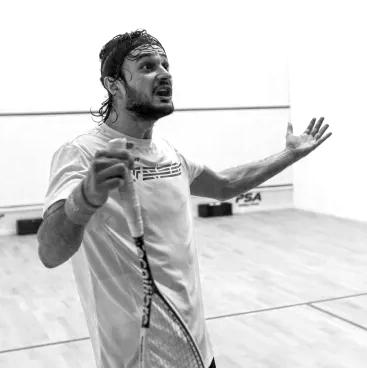

Answers to squash trivia (from p 33)
A1: Jade Wilson (1995)
A2: 2021
A3: 555
A4: 72 mins (Jonathan Kemp, CNS Open 2005)
A5: Anneka Weterman
A6: C
A7: Kings Birthday Weekend
A8: 75%
Please note – every situation is different and without seeing the exact context (player skill, direction of movement etc) we are giving our responses based on the rules and some guidance on how to apply them.
The Devoy Squash and Fitness Centre had always been proud to support both current and future talent, and this commitment had only grown stronger over time.
Their facilities had been made available to the NZ High Performance Squads, as well as the BOP Junior and Senior Squads, which were held regularly throughout the year. The club had also engaged a resident coach, John Cornforth, who provided dedicated coaching support. John’s efforts had significantly driven junior development, enabling them to offer clinics for players of all skill levels. Since John had started, demand for the junior program had surged, and the club had begun running junior programs during Terms 1 and 4, a first for them.
The club had seen remarkable achievements throughout the year. Their champion Cousins Shield team had completed a three-peat in this prestigious event. The Mitchell Cup team had also performed admirably, although they had fallen short at the final stage against a quality team. The B-Grade ladies had placed third, and the C-Grade men had secured sixth in their Superchamps finals. Several players had been selected to represent the Bay of Plenty at both junior and senior levels. Ella Hill had been selected to represent NZ at the World Juniors in Houston, where the team had earned 8th place. Ella had also represented NZ in both the Junior and Secondary Schools Trans-Tasman teams, with NZ winning both events. Recently, she had been named the Most Improved Junior Girl by Squash NZ. The club had also highlighted Wayne Werder and Robbie Wyatt, who had been awarded Life Memberships to Squash Bay of Plenty, thanking them for their years of support.
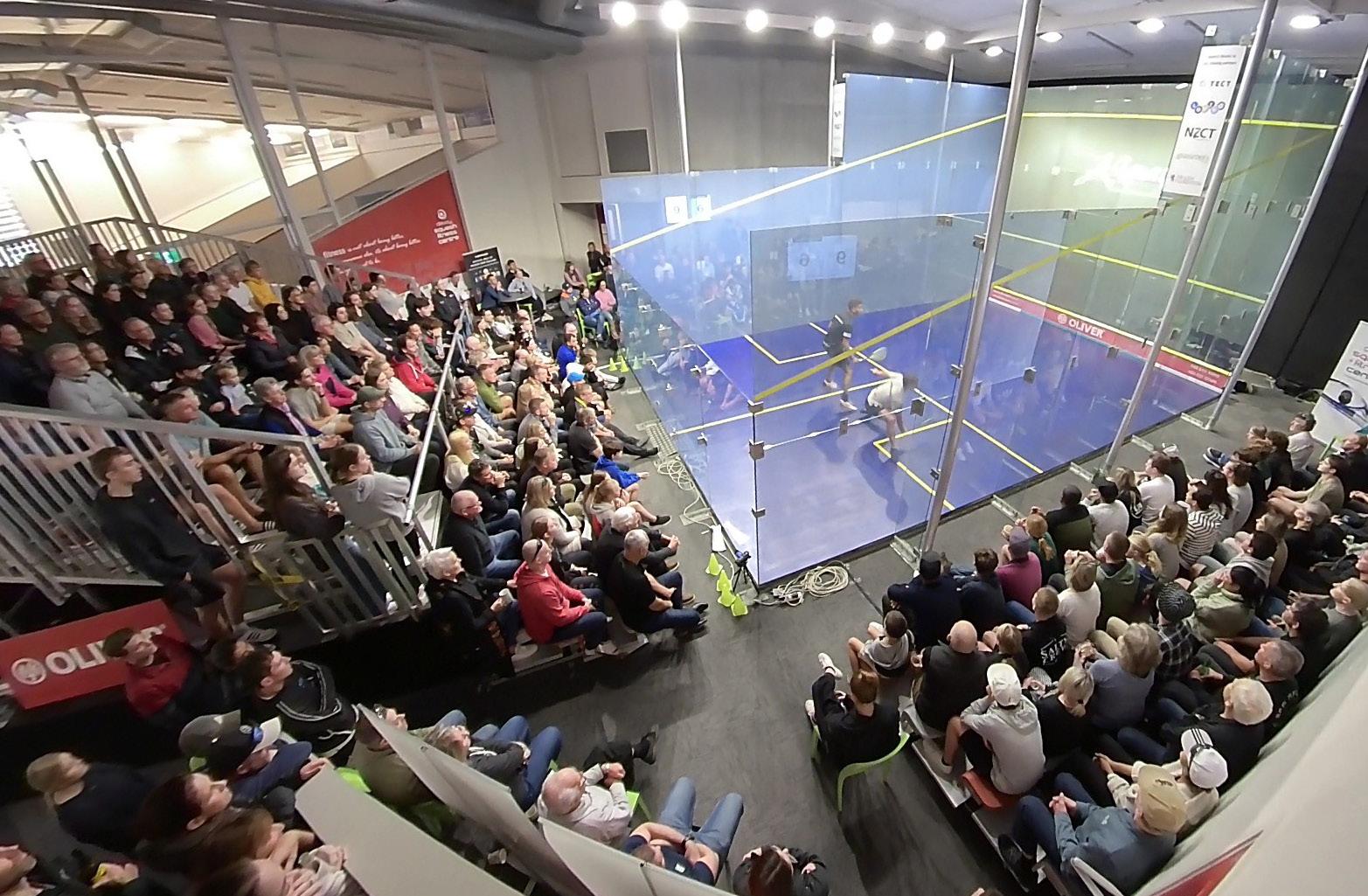
Despite facing financial pressures, Devoy had maintained a strong financial position with healthy cash reserves. Pro-shop sales had remained stable, providing additional support to the club’s income. The committee had continued to invest in maintenance, including the purchase of proprietary paint to prevent the need for expensive replacements in the future.
Devoy had also run successful introduction to squash programs, which provided a safe, welcoming environment for those new to the sport. Club night had continued to be a highly popular event, extending to Sundays for higher-graded players. Additionally, software developed by a member had removed the need for a whiteboard, automatically matching players ba sed on their skill levels.
On the improvement front, the club had invested in new outdoor furniture and a large shade sail to make the deck more comfortable during hotter months. They had also purchased paint from ASB Germany to recoat the front walls, which had endured considerable wear over the years, and they had planned to sand the courts to restore them to their original condition. Furthermore, they had been actively exploring the installation of solar panels, working through the business case for such a large investment.
On the social side, Thursday doubles had remained a favourite, quickly filling up and attracting interest from doubles players across the district. Business house had also been highly successful, with local businesses attending every round and a waiting list for the next one.
Lastly, Devoy had expressed great pride in hosting the NZ Senior Championships and providing their facilities for the Festival of Squash, NZ Open, and the World Men’s Teams Championships, allowing them to showcase world-class athletes and contributing to an unforgettable experience for all involved. Well done Devoy Squash and Fitness!
The problem
• Noticed a decline in player numbers attending Open tournaments across the top of the south.
• Recognised the rising cost of living was having an impact.
• Wanted to grow the number of players competing in tournaments.
• Identified the one-day tournament format might be the way to combat the issue.
• With players able to travel back and forth on the same day there is no need for accommodation and travel expenses can be shared more easily.
The solution
Last July we set up our first One Day Tournament.
The format
• 1 day
• 4 draws – first round 1 v 4 and 2 v 3.
• Winners play in the final and the other two up play for 3rd and 4th.
• Entry fee small at only $20
• Reached out to our local sponsors for prizes
• Members bring a plate to feed our guests during the day and with the help of Savito’s pizza for prizegiving
The result
• A huge success with 64 entries.
• All down to some friendly, but persistent persuasion by club captain Tom, and accessibility the format gave those who may not be able to give 2 or 3 days to competitive squash.
• Added more 1 day tournaments to the calendar in 2025.
• Approached Marlborough Rackets Club, Marlborough College Old Boys and Waimea Squash clubs to make up a series.
• All clubs keen to get on board and this year’s Stellar Top of the South series was born.
2025 series format
• 20,15,10,5 for position finished in the draw
• 20 points for entering an event away from your district
• 10 point for entering an event in your home district
• 20 Points for entering all 4 tournaments
• Secured a series sponsor in Stellar Squash
• Series final in Nelson with the top 8-10 finishers getting an awesome prize pack made up of items from the series and individual tournament sponsors.
• Goal of this model of awarding points will reward players that travel and play in all four events.


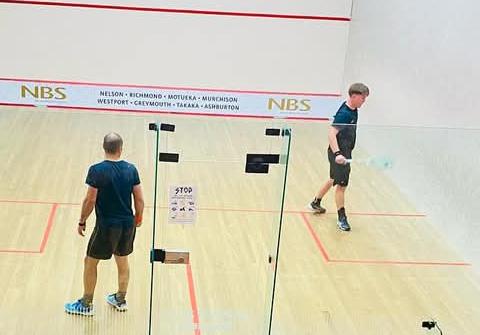

Looking to do an upgrade to your club or give it a facelift?
Click on the links below for tips on:
• Floor cleaning
• Wall cleaning
• Wall maintenance and repair
• Squash court foor sanding
• Squash court foor replacement
• New court lights
• Court heating and ventilation
• Changing room and bathroom facilities
• Lounge facilities
• Kitchen / bar facilities

Looking to build a new facility or expand your existing club?
• Needs assessment
• Feasibility
• Facility guidelines
• Design and consent
For information contact our Facility Advisor Jamie Archibald jamie@squashnz.co.nz
Click HERE to see special deals for affiliated squash clubs


your club’s uplift
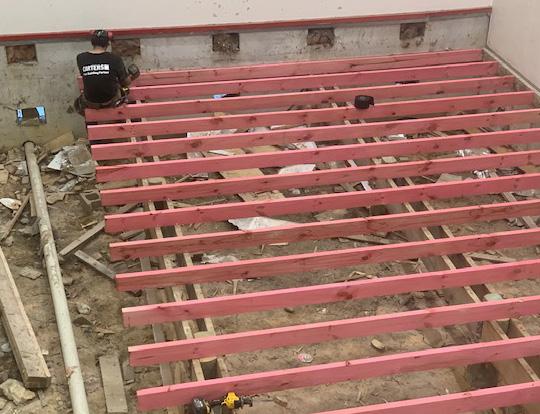









A key responsibility of a squash coach is to create a quality experience that keeps players engaged and motivated to continue playing. A well-designed environment fosters enjoyment, improvement, and longterm participation.
Elements of a Quality Experience
To ensure a high-quality experience, coaches should focus on the following elements:
1. Fun & Positive Environment
• Sessions should be engaging and enjoyable.
• Players should feel a sense of accomplishment.
2. Inclusive Atmosphere
• Every player, regardless of skill level, should feel welcomed.
• Activities should cater to a range of abilities and backgrounds.
3. A Sense of Value
• Recognise effort and progress.
• Encourage a culture where players feel valued and supported.
4. Appropriate Challenge
• Activities should be stimulating and encourage skill development.
• Challenges should be achievable but push players to improve.
To enhance the squash experience, coaches can apply these four essential tips:
TIP 1: Make Activities Rewarding, Challenging, and Exciting
Design activities that are engaging and provide a sense of achievement.
Balance fun with skill progression.
TIP 2: Focus Beyond Skills
Emphasise motivation, confidence, and the broader benefits of physical activity.
Help players develop a positive attitude toward learning and improvement.
Allow players to take responsibility for their development.
Foster independence and decision-making skills.
Ensure coaching positively impacts all aspects of a player’s health—physical, mental, and social.
Encourage teamwork, resilience, and personal growth.
By embedding these principles into coaching, we can create an environment where players thrive, stay engaged, and develop a lifelong love for squash. Coaches play a crucial role in shaping experiences that go beyond the court—inspiring confidence, growth, and enjoyment.

Have you ever broken a string, taken your racket to the stringer, and been asked, “What tension would you like?”—only to have no idea how to answer?
You’re not alone. Many club players focus on their racket choice but overlook the impact of string tension on their game.
Here’s the key: tension affects power and control. A higher tension (25-30 lbs) offers more control but less power, ideal for players who generate their own pace and want precision. A lower tension (20-25 lbs) provides more power but sacrifices some control, making it a great choice for players who rely on extra help from the strings.
But even among the pros, preferences vary. Gregory Gaultier, a former world champion, reportedly played with an incredibly low tension of around 14 lbs. This gave him enormous power and a lively feel on the ball—proving that there’s no one-size-fits-all approach. While such a low tension might not suit most club players, it highlights the importance of personal preference and playing style.
So how do you decide? If you love delicate drop shots and tight drives, you might prefer a tighter string bed. If you rely on power and deep shots, a looser tension could give you the extra punch you need.
The best approach? Experiment. Try different tensions and pay attention to how your shots feel. Even small changes can make a big difference in your game.
Next time your stringer asks what tension you want, you won’t have to guess—you’ll know exactly what works for you.
In this edition, we profile the 2024 Performance Coach of the Year, Evan Williams.

What inspired you to get into coaching?
Firstly, I used it as a way to make money while I was still on the tour. It quickly grew into a passion and suddenly, I was enjoying coaching more than playing!
What is your coaching philosophy?
Good people make good squash players. I think it’s easy to improve anyone’s game, but helping them grow as a person is my main objective.
What is something surprising you have learned about coaching?
Playing is so much easier!!
What advice would you give to new coaches? Find an area of the game that you enjoy coaching the most and try and specialize in that.



Andrea Dudley will be a well known name and face to most Southland squash players. She has been an integral member and organiser of the Southland Masters Team in recent years, and has also represented Southland in the South Island Quadrangular Event on numerous occasions. In 2024 she was a very proud and deserving winner of the inaugural Debs Shirley Masters Personality of the Year Award.
Andrea has coached at club and District level, always willing to help others when needed. She has also been a regular attendee at the Squash New Zealand Coaching Conferences. In 2024 we made a decision to launch Junior Training Camps for players and coaches in the 2025 season. Andrea was chosen to be the lead coach of these Camps. Combined with our successful existing Junior 1 Day Series tournaments, a pathway was quickly established for our Juniors, leading into the South Island Junior Age Group Champs in July.
Camp 1 was held in mid March with 28 Juniors from clubs all over the District and 8 coaches from 5 different clubs, plus an introductory Rules & Referee session run by our local National Referee, Nicky McNaught. All of this was overseen by Andrea. The initial feedback has been extremely positive with a very similar number registered for Camp 2 just two weeks later.
The camps provide the opportunity for the Juniors and Coaches from clubs all over Southland to work together to improve their skills. Clubs and Junior CoOrdinators are also invited to come along as helpers, or just to see what can be done to set up their own club programme. The overall result will be that our Juniors improve and their numbers increase, along with our number of coaches who can then take their skills back to their own clubs.
Thanks Andrea. Keep up the great work!!!!
The Titanic, the largest passenger steamship of the time, had a squash court. It was available for first class passengers, who could take lessons from, Fred Wright. He had previously worked as squash coach at the Bath Club in London, before being hired by the Cunard Line: first on the Olympic (1911) which also had a squash court, and then on its new sister ship, the Titanic. Wright was one of the over 1500 who perished when it went down on its maiden trip in 1912.
Source: Squash Then and Now: A Celebration, written by Andrew Shelley and Bas van Hoorn



Q - What’s an ‘LS’ grade?
A - LS stands for Lifestyle player. Our new player subscription options means any club member can have a SquashLevel, helping them judge their current playing form accurately and making it easier to find other players of a similar level. They are also on the grading list, however unlike our traditional ‘graded’ players, regardless of their level their grade will be LS.
Troubleshooting Tip, if you’re a graded competitive player but you now have a LS grade showing, In MySquash, go to your Profile page and check you have a Competitive Adult or Junior Player subscription under ‘Membership’ showing. If there is a Lifestyle, Digital, or no membership, contact your club to give you the correct subscription.
If you have the correct subscription type showing, the LS grade will update to a normal grade after you play your next competitive match
Q – How do I enter a tournament?
A - Check out our short video on how to enter a tournament using the Competition Actions section
Click HERE for video tutorial.
Troubleshooting Tip, if you can’t see Competition Actions in the Competitions menu, in MySquash click on Profile and look under ‘Membership’. If this doesn’t have Competitive Adult, Lifestyle Player or Junior Player showing, contact your club to check your club membership is up to date and your membership has been bundled with the correct MySquash player subscription type.
If you have questions regarding MySquash
Please send your question to admin@squashnz.co.nz
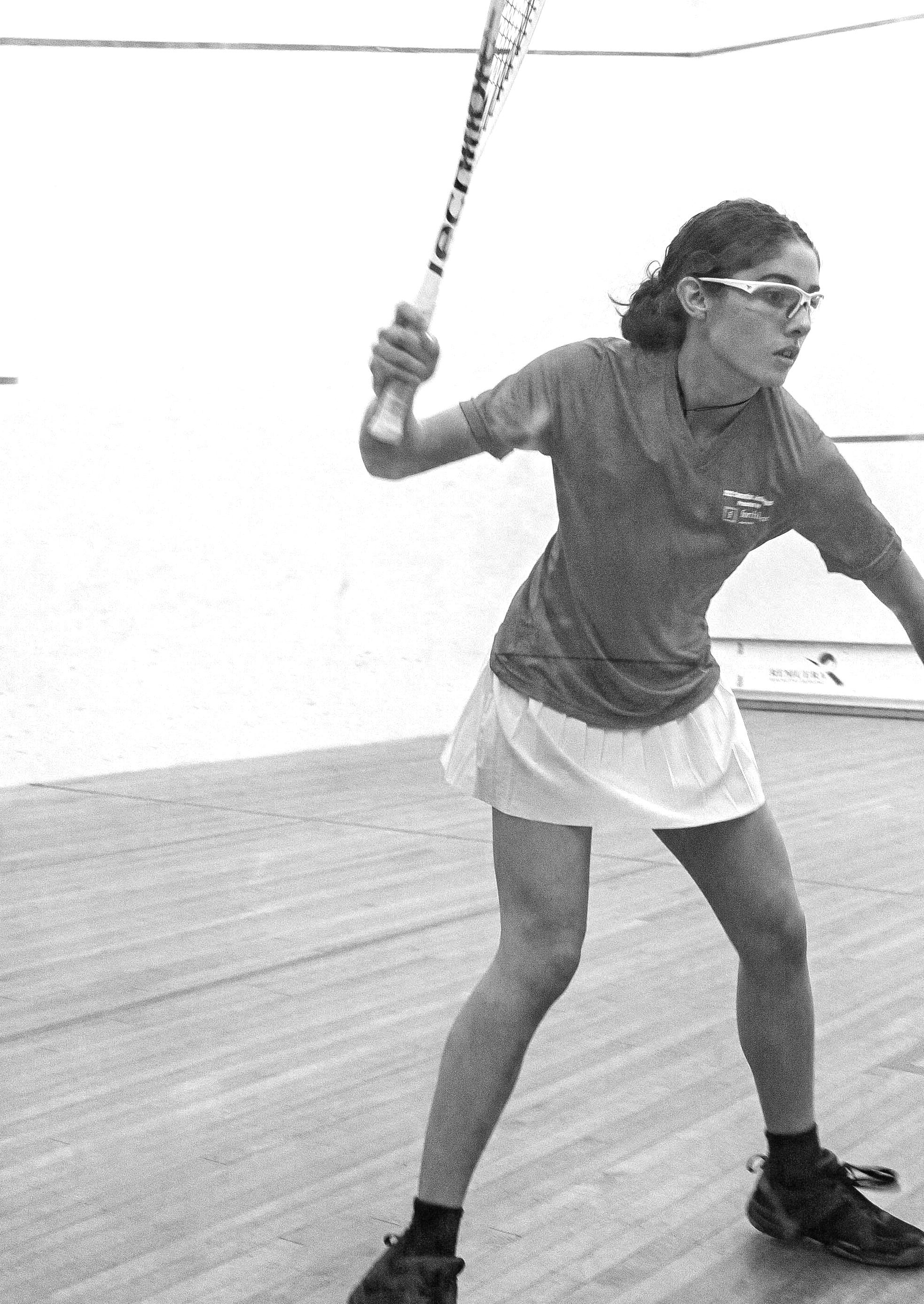
MOST IMPROVED FEMALE

MAEBH MANNING / Devoy
MOST IMPROVED MALE congratulations congratulations
JOSH STANNARD / Otago Uni
41.5% 70.1%

Event
New Zealand Junior Open
Canterbury Junior Open
Oceania Junior Championships
Central Junior Open
Auckland Junior Open
Waikato Junior Open
North Island Junior Championships
South Island Junior Age Groups
Wellington Junior Open
Northland Junior Open
BOP Junior Open
NZ Secondary Schools Squash Nationals
Eastern Junior Age Groups
Otago Junior Open
Southland Junior Open
Midlands Junior Open
G.J. Gardner Homes NZ Junior Age Group Championships
NZ Inter-Disrtict Junior Team Championships
Date
7th - 9th March
4th - 6th April
19th - 21st April
23rd - 25th May
6th - 8th June
12th - 14th June
28th - 30th June
11th - 12th July
17th - 19th July
25th - 27th July
25th - 27th July
1st - 3rd August
22nd - 24th August
22nd - 24th August
29th - 31st August
5th - 6th September
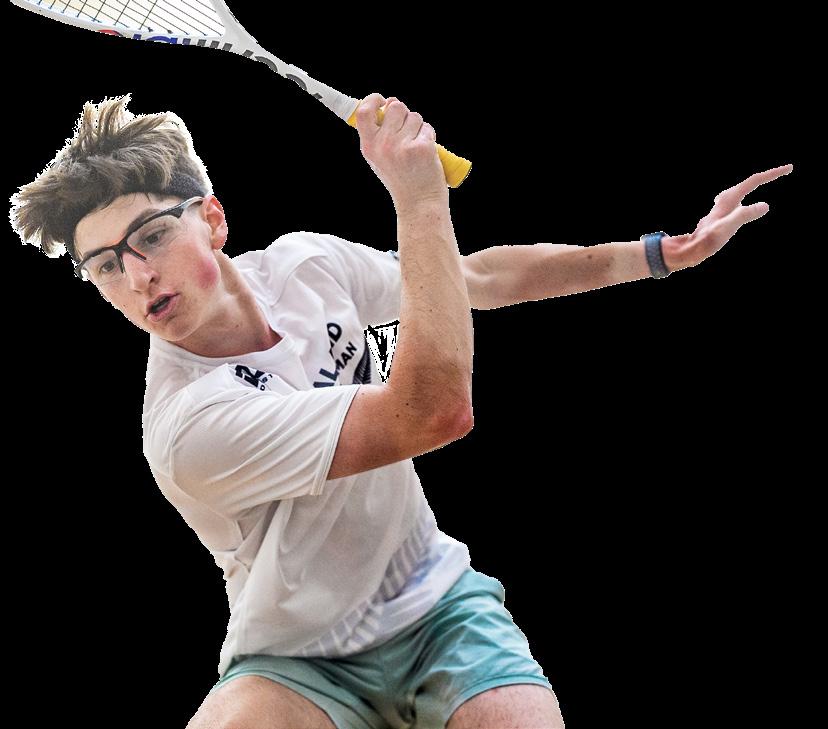


Venue
Christchurch Squash Club
Rangiora Squash Club
Hamilton Tennis & Squash Club
Ohakune Squash Club
Remuera Rackets Club
Morrinsville Squash Club
Whangarei Squash Club
Ashburton Squash Club
Tawa Squash Club
Keri Keri Squash Club
Whakatane Squash Club
Hutt City Squash Club
Hawkes Bay Squash Rackets Club
Cromwell Squash Club
SquashCity Invercargill
Timaru Squash Club
26th - 28th September
29th - 30th September
Henderson Squash Club
Henderson Squash Club



New Zealand Masters Games
Auckland Masters
Central Masters
Canterbury Masters
Waikato Masters
Midlands Masters
Wellington Masters
Otago Masters
Masters Club Team Championships
Northland Masters
BOP Masters
Southland Masters
G.J. Gardner Homes NZ Masters Championships
NZ Inter-Disrict Masters Team Championships
6h - 9th February
20th - 22nd March
11th - 12th April
16th - 18th May
22nd - 24th May
11th - 12th July
17th - 19th July
8th - 9th August
8th - 10th August
22nd - 24th August
29th - 31st August
29th - 31st August
17th - 19th October
20th - 21st October

Whanganui Squash Club
Kumeu Squash Club
Okato Squash Club
Christchurch Football Club
Huntly Squash Club
Ashburton Celtic Squash Club
Pirates Squash Club
Hutt City Squash Club
Kamo Squash Club
Te Puke Squash Club
SquashCity Invercargill
Nelson Squash Club
Nelson Squash Club


Event
Waikato Open
Eastern Open
BOP Open
Auckland Open (PSA)
Southland Open
Otago Open
Northland Open
Wellington Open
Central Open
South Island & Canterbury Open
Midlands Open (PSA)
Date
14th - 16th March
2nd - 4th May
9th - 11th May
22nd - 25th May
23rd - 25th May
6th - 7th June
6th - 8th June
6th - 8th June
13th - 15th June
19th - 22nd June
28th - 31st June
Hamilton Squash & Tennis Club
Hastings Squash Club
Taupo Squash Club
North Shore Squash Club
SquashCity Invercargill & ILT Stadium Southland
Otago Squash Club
Whangarei Squash Club
Tawa Squash Club
SquashGym Palmerston North
Christchurch Football Club & Richmond Squash Club
Temuka Squash Club
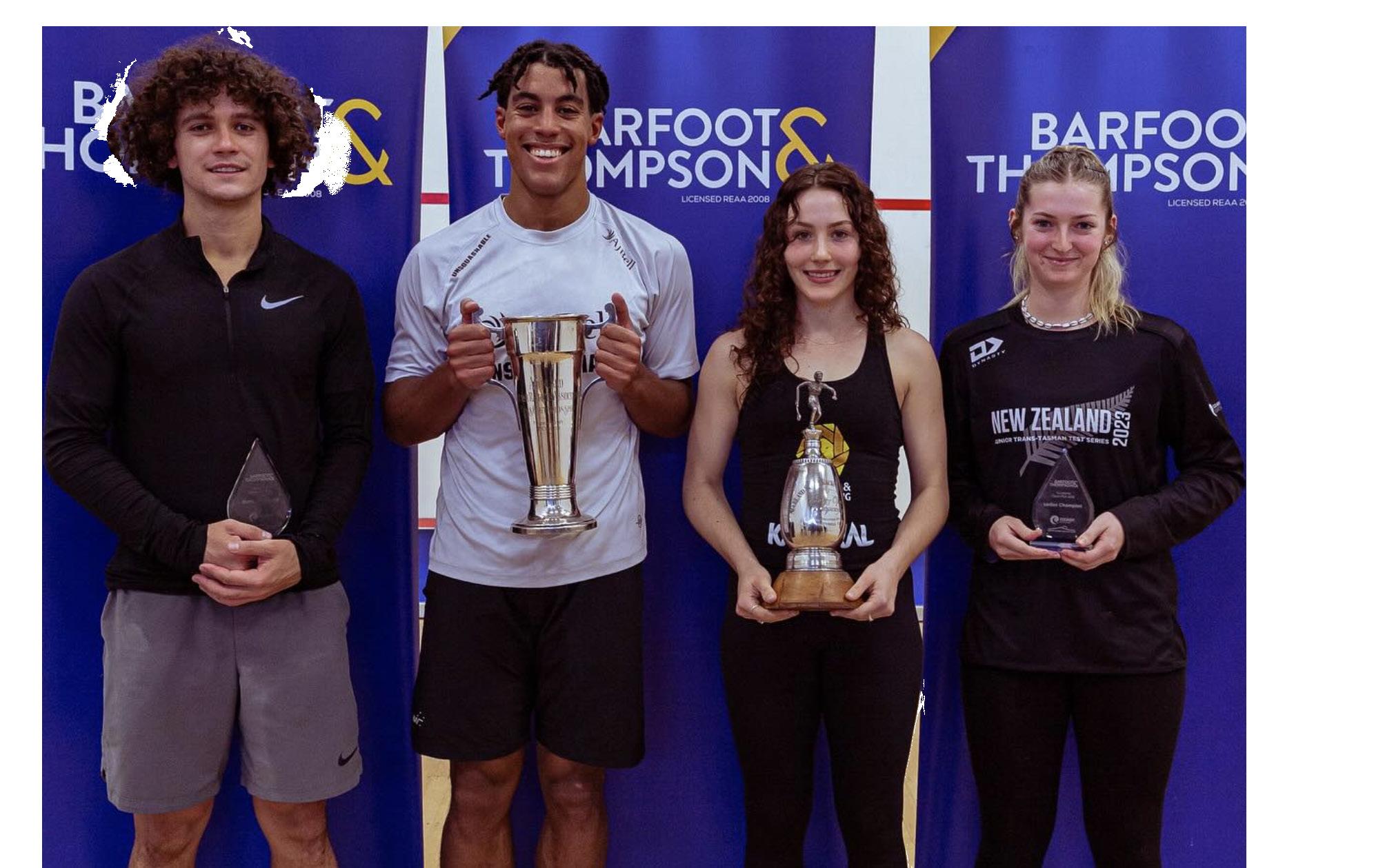

4th - 9th
7th - 9th
28th - 29th
19th - 21st
30th - 1st
28th - 30th
4th - 6th
11th - 12th
1st - 3rd
8th - 10th
15th - 16th
10th - 14th
10th - 14th
10th - 14th
10th - 14th
10th - 14th
26th - 28th
29th - 30th
17th - 19th
20th - 21st
New Zealand Open
New Zealand Junior Open
New Zealand Doubles Championships
Oceania Junior Championships
Mitchell Cup & Cousins Shield
North Island Junior Championships
New Zealand Championships + National Graded Champs
South Island Junior Age Groups
NZ Secondary Schools Squash Nationals
Masters Club Team Championships
NZ Inter-District Team Championships
G.J. Gardner Homes National Superchamps
B Grade Superchamps
C Grade Superchamps
D Grade Superchamps
E Grade Superchamps
F/J Grade Superchamps
G.J. Gardner Homes NZ Junior Age Group Championships
NZ Inter-District Junior Team Championships
G.J. Gardner Homes NZ Masters Championships
NZ Inter-District Masters Team Championships


Isaac
Christchurch Squash Club
Hutt City Squash Club
Hamilton Tennis & Squash Club
Cambridge Rackets Club
Whangarei Squash Club
North Shore Squash Club
Ashburton Squash Club
Hutt City Squash Club
Hutt City Squash Club
Squash Gym Palmerston North
Timaru Squash Club
Otago Squash Club
SquashCity Invercargill
Hawkes Bay Squash Rackets Club
Geyser City Squash Club
Henderson Squash Club
Henderson Squash Club
Nelson Squash Club
Nelson Squash Club

Want to be featured in The Boast?
Email admin@squashnz.co.nz with stories from your club or district to be featured in the next edition of The Boast.
MAJOR PARTNERS

STRATEGIC FUNDERS

MAJOR FUNDERS

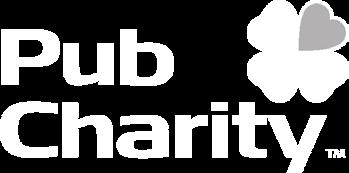

SUPPORTING PARTNERS

Subscribe to The Boast here